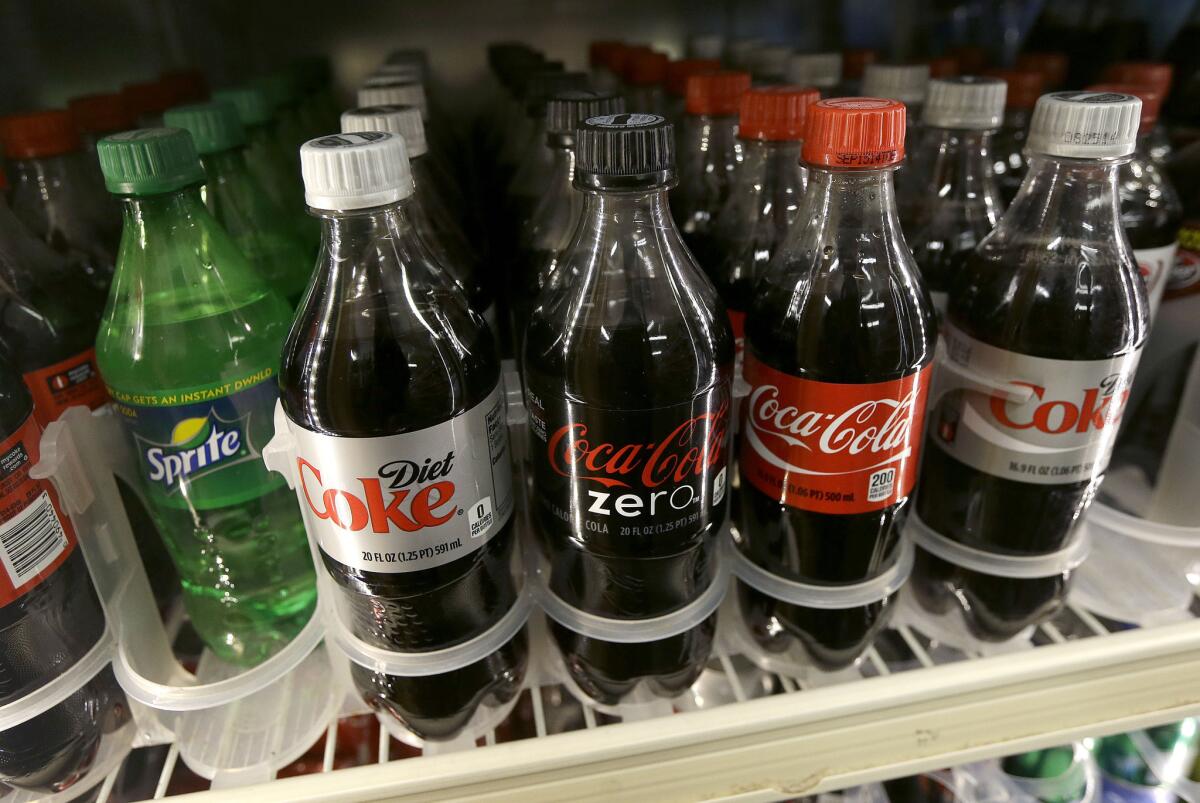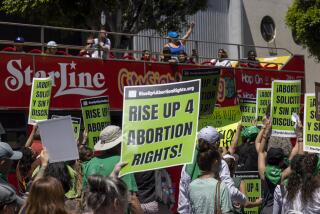Op-Ed: Big Sodaâs false populism

In its $10.5-million spending binge to defeat soda tax measures in Berkeley and San Francisco in November â and to stem the nationwide push to hold Big Soda accountable for epidemic diseases related to sugar overconsumption â the soda industry has positioned itself as a populist defender of poor peopleâs access to supposedly cheap soda.
In San Francisco, the American Beverage Assn. calls its campaign the Coalition for an Affordable City, likening a rise in soda prices from the proposed two cents per ounce tax (a penny per ounce in the Berkeley measure) to skyrocketing rents that have displaced thousands of residents.
But itâs the soda industry that is generating enormous costs with its glut of sugary drinks â to both human health and our collective pocketbook. Our national epidemic of obesity, diabetes and heart disease costs us millions of lives and hundreds of billions of dollars annually, and health studies consistently identify sugar overconsumption as a significant factor.
To be sure, a soda tax would make sugar-packed drinks more expensive for all consumers, including poor people, to help discourage overconsumption. But the true costs of seemingly âcheapâ soda are deadly high â physically and financially â and poor consumers pay dearly for high soda consumption. Studies repeatedly show it contributes to elevated rates of Type 2 diabetes, obesity and heart disease, resulting in widespread suffering and huge healthcare costs.
Donât buy Big Sodaâs faux populist frame: The soda industry is protecting sales and profits, not poor peopleâs economic or physical well-being. Rather than an attack on poor peopleâs soda rights, the proposed taxes are important public health measures that would enhance and expand access to healthful food and beverage options for poor people and communities of color.
A report by the San Francisco city economist found that a soda tax would reduce consumption by 31%. The city, despite its âfoodieâ reputation, imbibes 23.4 million gallons of sugar-laden soda drinks each year.
A study by scientists from UC San Francisco, San Francisco General Hospital and Columbia University concluded that a penny-per-ounce tax on sweetened beverages âwould prevent nearly 100,000 cases of heart disease, 8,000 strokes and 26,000 deaths over the next decade.â A soda tax would âprevent 240,000 cases of diabetes per year,â says study coauthor Kirsten Bibbins-Domingo, professor of medicine at UC San Francisco.
âPoor and minority communities in California and nationally have very high rates of diabetes, a chronic condition with potentially devastating health complications,â Bibbins-Domingo explains. âAlthough many steps are needed to reverse the rising diabetes trends in the state, our study suggests that efforts to curb sugary beverage consumption can have a significant positive impact, particularly in those most likely to be affected.â
The industryâs false frame of soda access obscures the reality that a veritable flood of soda, along with fast food and junk food, has crowded out more healthful food and beverage choices in low-income communities across the nation. In addition to discouraging sodaâs damaging proliferation, the tax would produce revenue supporting childrenâs nutrition and physical education programs, creating vitally needed openings for more healthful alternatives in poor communities.
In Berkeley and San Francisco, a broad coalition of public health groups, Latino and African American health and community organizations, education and youth groups, food access advocates and others are backing the soda tax measures as a means of protecting health and expanding poor communitiesâ access to nutritious food and drink.
Itâs important to view Big Sodaâs products and campaign claims in the context of Americaâs deep food divide. Health studies and food mapping research show direct links between poverty, food access, the proliferation of fast food and junk food (including soda), and elevated rates of chronic and life-threatening diseases.
Although soda taxes alone wonât fix Americaâs nutritional nightmare, they would bolster efforts to expand access to healthful food in poor communities. By encouraging all Americans to consume less soda, these taxes create the incentive and opportunity to seek out more healthful options that would save lives. It would also save dollars; otherwise, the soda industry wouldnât be so worried.
Christopher D. Cook is a journalist and the author of âDiet for a Dead Planet: Big Business and the Coming Food Crisis.â
Follow the Opinion section on Twitter @latimesopinion
More to Read
A cure for the common opinion
Get thought-provoking perspectives with our weekly newsletter.
You may occasionally receive promotional content from the Los Angeles Times.










